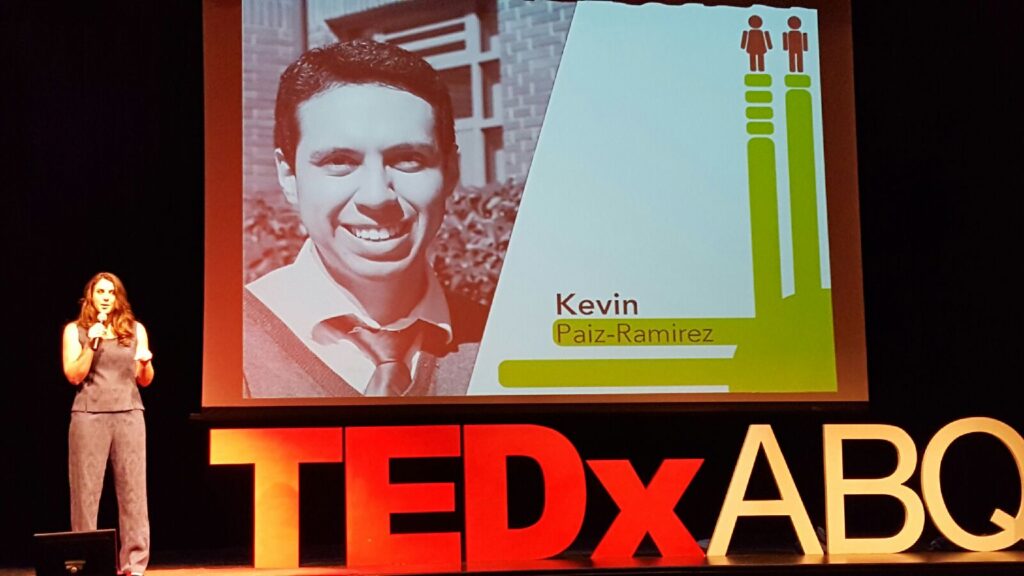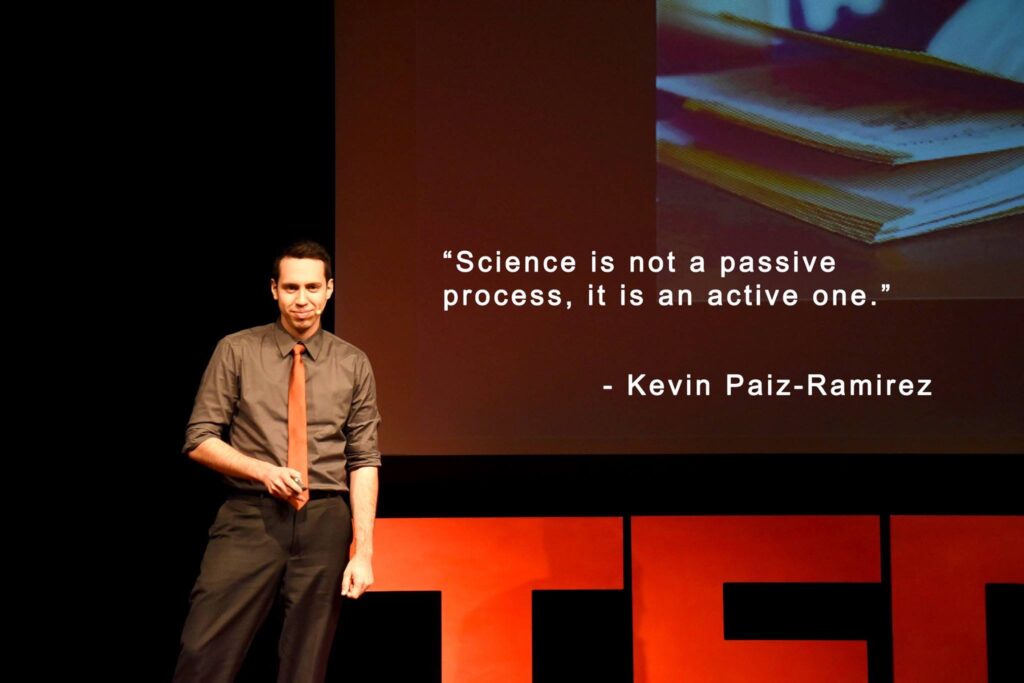May 2016 UPDATE: Here is a link to Mr. Ramirez’ TED Talk


When asked why they chose to go into the education profession, almost all educators will tell you that they wanted be teachers simply for one reason: to make a difference. Coronado Middle School teacher Kevin Paiz-Ramirez, who’s a science instructor for sixth and seventh grade students, is indeed doing just that! He’s making a difference not only to his students, but also to the way that science is valued and talked about in schools, and he has been invited to be one of the featured speakers at TEDxABQ on Friday, March 25, 2016 from 1 p.m. to 4 p.m. in Albuquerque, New Mexico.
Just who is Mr. Ramirez? When you meet Mr. Ramirez, he’s got a goofy science guy kind of charm, and it’s his adorable, big toothy smile that you notice immediately, instantly putting you at ease. Well-spoken and confident, Mr. Ramirez could easily converse with anyone in the scientific community, but it is his sincere love of science and learning paired with his haunting memories of what it felt like to be in middle school that makes Mr. Ramirez someone with whom students can really connect. In a nutshell, Ramirez is the exact kind of science teacher every parent hopes his or her child has because he’s so incredibly smart and well-educated, but at the same time so down-to-earth, unassuming, and genuinely kind-hearted.
Ramirez was born in Oakland, California, but moved to Albuquerque, New Mexico before he even reached his first birthday. His father left when he was born, and his mother Gloria relocated to New Mexico with Ramirez and his older brother Dennis to be with her sister, who had started a restaurant in Albuquerque.
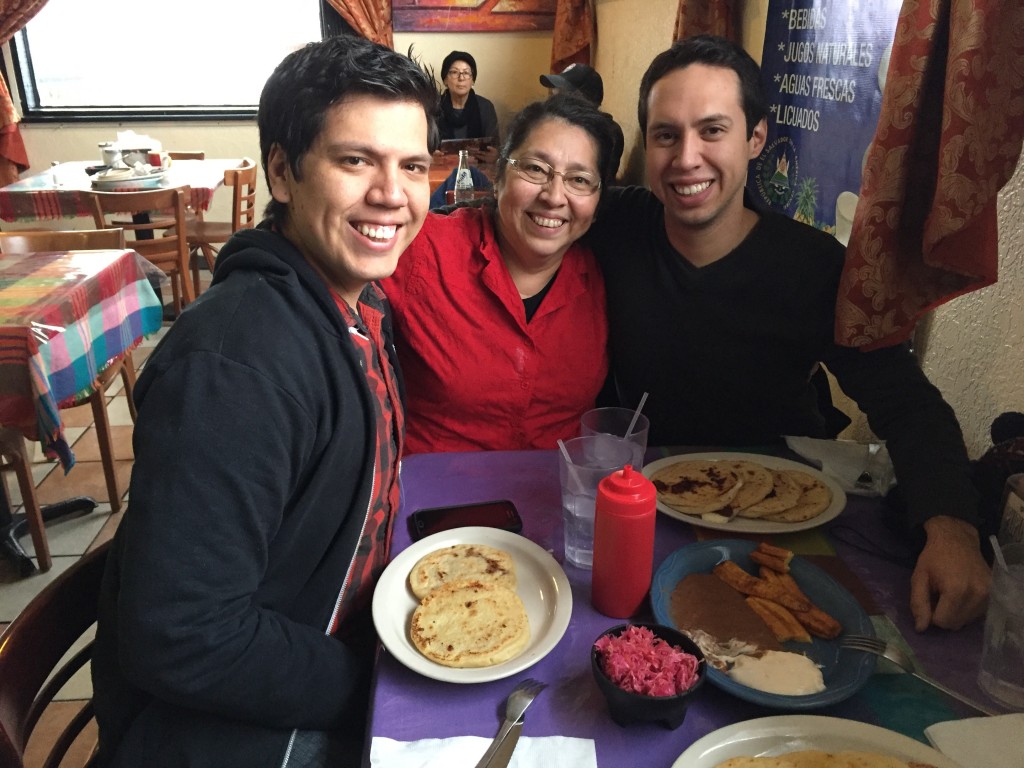
Growing up in Albuquerque wasn’t easy for Ramirez, especially when he was in middle school. Albuquerque was home to drugs and a number of gangs, and Ramirez himself was often a victim of bullying. He experienced “everything you can possibly imagine.” He recalls, “Just in general, middle school was always very difficult for me. English is my second language so I had been through speech pathology for a very long time. I still had a tendency to speak very quickly, and people made fun of that.” Ramirez, who is very slender today, remembers how kids made fun of him in middle school because he was “a heavier kid.” To this day he remembers how “it felt to go to school every day and be on guard,” and how he didn’t like to participate in class because he didn’t want to draw any attention to himself.
While he didn’t have a lot of friends growing up, the few friends he had valued education like he did, and his mother and brother were always there to keep him motivated. “I am so thankful for my mother and brother who acted as such good role models because they always encouraged me that education was the one thing that no one could ever take away from me.”
After graduating from high school in Albuquerque and receiving the Gates Millenium Scholarship, Ramirez attended Loyola Marymount University. In 2011 he graduated from LMU with a degree in biology, focusing on cellular biology with genetics. While attending LMU, he had a job in bioinformatics at the Dahlquist Lab, where he worked on sequencing the tuberculosis genome. Clearly college wasn’t about partying for four years for Kevin Paiz-Ramirez!
Ramirez absolutely loved the scientific aspect of working in a lab, becoming animated as he talks about the aspects of genetics he finds most interesting, so what made him decide to become a teacher? He realized he was spending all of his days indoors in rooms with no windows and no access to sunlight, and he realized that there was not nearly as much interaction with people as he would have liked. “I loved what I was doing, but it wasn’t making me happy,” he notes, which is quite an interesting distinction. Trying to earn extra money, Ramirez began tutoring students. “What I loved about tutoring was every time I had a tutoring session, I would get a new student, and get a chance to make a new connection. I found I was looking forward more so to tutoring than I was to the bioinformatics job. Then I changed my mindset, and thought, ‘What if I went into teaching? What would that look like?’ ”
Upon his graduation from LMU, Ramirez was accepted to a “really awesome school, and was all set to go”, but was still one teacher exam away from fulfilling the requirements to begin his graduate studies. With one more exam looming as well as wanting to help care for his mother, who required surgery at that time, Ramirez hoped to defer his acceptance, but unfortunately that particular university didn’t accept deferments.
Suddenly Ramirez, who studied so hard at LMU while working concurrently with Dahlquist Lab, found himself back in Albuquerque. Instead of academically challenging himself in the lab, he was instead working at the local pizza chain Dion’s, “making subs” before “graduating to making pizza.” Ramirez was earning minimum wage, and wondering how he could even afford to apply to other graduate schools let alone pay for tuition. Would he ever make it?
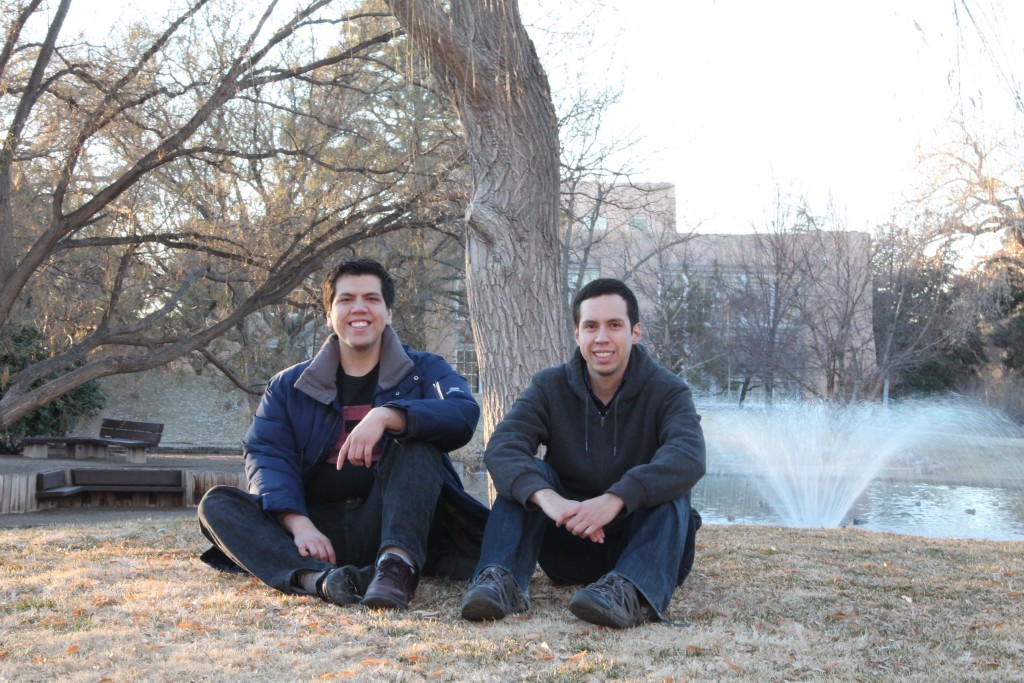
It was Ramirez’s brother Dennis who encouraged him to stay the course and apply to the best schools. “I couldn’t even afford the applications, but my brother said, ‘You do the work, and I’ll pay for them.’ It was extraordinarily nice of him,” he says with the utmost respect for his brother.
With graduate school acceptance letters from Cornell University and Columbia University, Ramirez’s life was about to change as he had never even been to the east coast before. When faced with the decision of which school to choose, Ramirez thought, “If I’m going to do the city, I’m going to do the city right. I decided to go right into Manhattan,” leading him to chose Columbia University.
While earning his Master’s Degree in Genetics, Bioinformatics, and Cellular Biology from Columbia University, Ramirez began teaching at Manhattan Village Academy in Chelsea, where he taught ninth grade biology and eleventh grade chemistry. Busier than ever, he taught during the day, and attended graduate school at Columbia University in the evening.
He was then offered a job at InTech Academy in the Bronx, where it was his first time teaching middle school aged students. “At the time, I had to change my mindset because I myself had a very bad middle school experience, as I’m sure many of us probably have,” Ramirez says of his transition from teaching at a high school to teaching at a middle school. “Initially I was kind of against it. I didn’t feel like I would be able to connect with as many students. I had gotten the chance already while I was teaching at Manhattan Village to really reach a lot of my students, and give encouragement to some who just needed that last little bit to start applying for scholarships and start getting ready to go to college,” he explains. When he worked with high school students, Ramirez “had the chance to connect with them to change their mindsets to start being more active in the process of science, which was incredibly rewarding.”
When it came to switching to middle school, Ramirez says, “Initially I thought, ‘It’s not going to be the same.’ My own memories were kind of blocking it, but when I got there what was really cool was all of a sudden you’re [as the teacher] on the other side of it. Gosh, when I was a kid, I would sit in the back because I didn’t want to get picked on, or I would sit toward the middle and try to get more attention from the teacher so stuff wouldn’t be going on around me with bullying. All of a sudden now as a teacher now I had a different perspective, and I was looking out for this stuff.”
Remembering his own negative experiences was the motivation Ramirez used to ensure that his own students at InTech Academy had a better experience in middle school than he did when he was their age. He formed a plan that was already different than what he experienced in middle school, saying his strategy was, “We’re going to break up in groups. I’m always going to circulate around so that every student feels safe.”
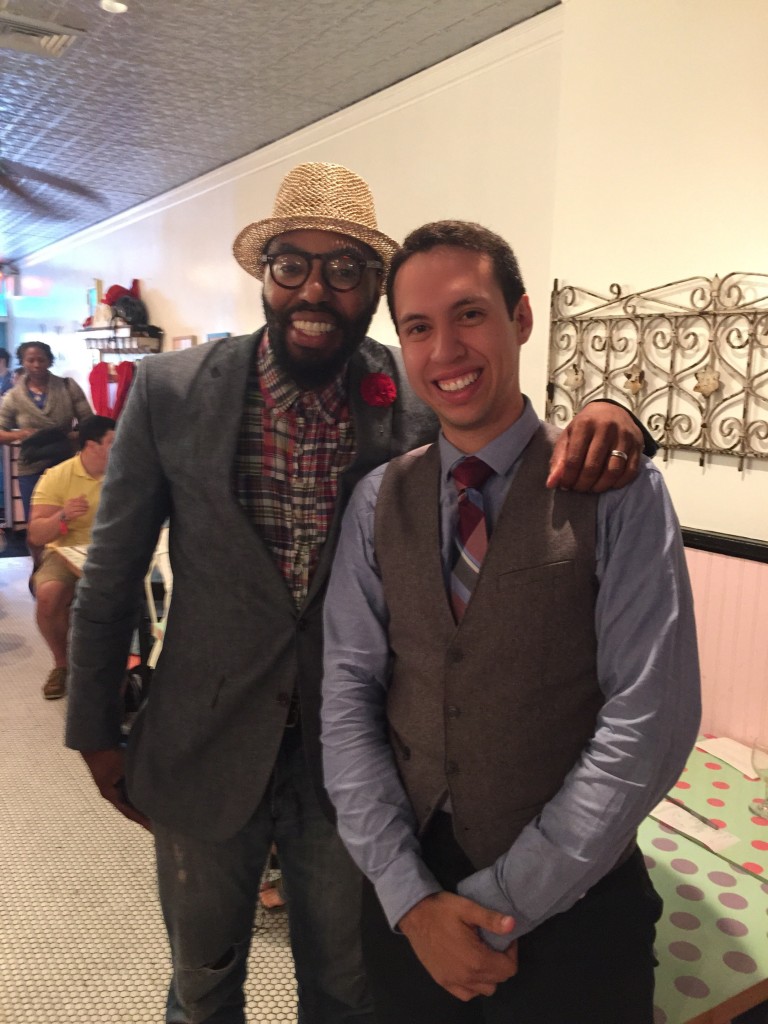
Ramirez credits his mentor from Columbia University, Dr. Christopher Emdin, for being an inspiration. “What he always said about teaching in New York is, ‘You have to be able to connect with the reality of your kids.’ Every day he would greet the kids with a smile, and set the tone.” Ramirez explains how some of his own students in the Bronx had to take three trains and walk through drug ridden neighborhoods just to get to school each day, and how he followed in his mentor’s footsteps by making each student feel welcomed every single day.
Ramirez soon learned that his worries about teaching middle school students were a thing of the past, and found that he actually liked teaching that age group. Ramirez explains, “What really surprised me, what really made me latch on to middle school was that at the high school level you’re lucky if you get the chance to make connections with students and make an impact on them, but at that age [high school] some of them have already made up their minds on certain things. That could be from the realities that they have to face growing up with some difficulties and a lot of other factors, but it’s difficult sometimes to change that mindset. What really amazed me about middle school was all of a sudden, you can have a classroom of thirty, and you can really engage and encourage middle school kids, and get them all so excited. It’s such a delicate age, but I feel you can latch on to so many more kids and reach more kids. I especially love at this age how you can see it all over their faces. You might have some kids who say, ‘I don’t know. This is boring,’ but if you encourage them, you can immediately see their whole face change when they start to get a concept.”
Most new teachers have a hard enough time juggling all of their responsibilities during their early years of teaching, but imagine doing it while also having to attend graduate school at night! For thirteen months Ramirez kept up the hectic lifestyle of teaching during the day and attending graduate school at night. In 2013 Ramirez earned his master’s degree from Columbia University, and then shortly thereafter made the move to California, where he began teaching at Coronado Middle School. While the new setting of his workplace in the Crown City stood in stark contrast to his school in the Bronx, Ramirez’s love of teaching middle school didn’t change, and, if anything, it was only strengthened.
“Coronado is one of the most remarkable places where you can ever hope to teach. What I really love about my job here is that these kids are so incredibly academically motivated, and they’re working on such a higher level that they want to be challenged, which is the biggest incentive you can ever have as a teacher,” he says. “My students know! I always tell them, ‘My favorite part of my job is getting to see you guys, getting to encourage you guys, challenge you, and see you figure things out.’ I wake up every single morning happy to come to work. That’s pretty rare.”

Ramirez’s statement about it being rare [for most] to wake up happy to come to work is spot-on. With spring break on students’ and teachers’ minds alike, Ramirez is the kind of teacher who will actually miss his students over spring break, just like he misses them over the long summers. He doesn’t seem like one of those teachers who counts down the number of days to the last day of school with an irrepressible sense of glee, but rather seems like one of those teachers who instead counts down the summer days until the magical first day of school.
While he will miss his students over spring break, Ramirez will have the unique opportunity to be one of the thirteen speakers featured in the independently organized TED Talk called TEDxABQ ED, in none other than his hometown, the place where he grew up feeling unsafe at school. When asked how he even became part of this TED Talk, he humbly admits that he was nominated to speak at the event, and from there had to apply and was accepted. What an interesting turn of events for Ramirez to speak about teaching to a live audience (as well as a live-streamed audience) in the very city where he was bullied as a child. Most importantly, he’s getting to speak in the place his mom Gloria still calls home.
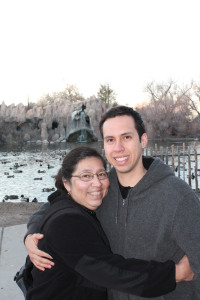
“My mom has been my biggest role model,” Ramirez says, marveling at how she raised two children by herself. “My mom just always encouraged us to do stuff that we were passionate about, that we cared about.” Ramirez credits his mother for being the reason he is so passionate about teaching. He explains, “She’s seen the energy I have when I get to reach my students and challenge my students. What’s incredible about it is my mom was always very clear, ‘If you start to lose that passion in your profession, you’ve got to get out of teaching because it would be a detriment to the kids.’ I fully agree and connect with that because it’s true. These kids are so good at reading you and telling when you’re genuine. If you’re not loving what you’re doing anymore, then the children you’re around immediately understand that. How are they expected to give back to you when they can feel that you don’t want to be there?”
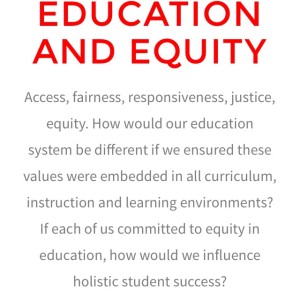
“Students today need to be scientifically literate,” Ramirez says as he explains the topic of his TED Talk, #science. “With everything going on in the world changing as fast as it does, with innovations happening every single day, if we’re not teaching our students to be scientifically literate, they’re not going to have a claim and a responsibility and a voice in decisions that are going to change our entire world,” he points out. “I see that very much as a responsibility,” he notes of ensuring that his students are scientifically literate, “to get these kids passionate, to get these kids to see the intricacies that go on in the world, and to be active because science is not a passive subject.”
“You have to be active in your own learning,” Ramirez advocates to his students, and will reiterate to the upcoming audience in Albuquerque. “Whether it’s reading, having conversations, having arguments, or dialogue,” Ramirez believes thinking about and discussing the science that exists in the everyday world beyond the four walls of his science classroom is what will ignite students’ passion for science. It is his mission to not just get students to learn science, but rather to make them want to learn science. Because the world is ever changing, he doesn’t just want students to carry that passion with them while they are still in school, but is hoping they become lifelong learners of science.
Ramirez is especially aware of the fact that sometimes female students view science as a career path for men more so than women while some students believe that science is only for people of certain skin tones. When he taught in New York, Ramirez recalls, “It was 2012 when I was teaching at InTech that I had these girls in my class saying [of science], ‘No, that’s for a white guy to do.’ That’s the reality that some of these kids have been presented with, that science is something more predominately for men, especially white men.”
“Lunch with a Scientist” is a program that Ramirez started in New York to expose students to real scientists, both male and female, of all skin tones and ages, and it was so successful that it’s something he brought to Coronado. When he launched the program at his school in New York, he recalls, “It was cool because the majority [of the scientists] happened to be women, who really connected with the girls.” He adds, “It’s about setting expectations for all of the kids.” By getting to meet real scientists in multiple fields, students realize they “can all reach this [becoming a scientist] with hard work, passion, and putting [themselves] into it.” He advocates, “Find your passion by doing something that you care about.”
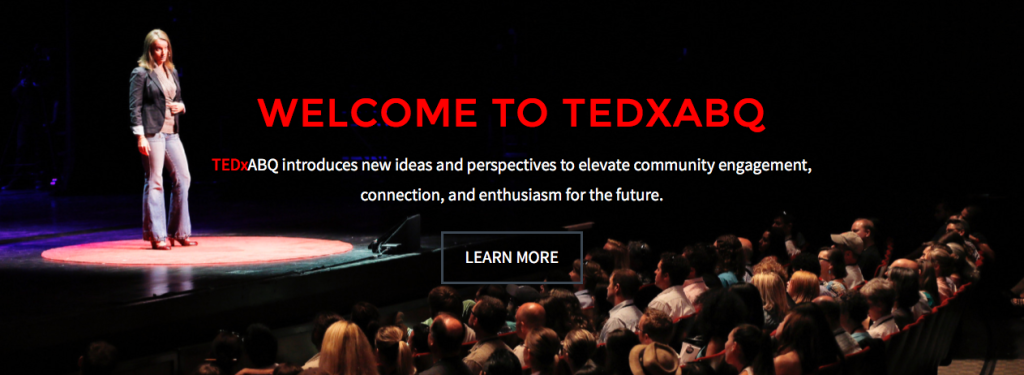
Ramirez excitedly discusses how essential technology is to modern-day students. “Technology is such a deep part of their lives,” he acknowledges. “It’s a language that they’re growing up with. It’s our responsibility to teach them how to be responsible with this technology. They’re already interested in a part of science so how do we make them more active in it?”
When Ramirez starts off his TED Talk about #science, he’s going to start off by discussing “how every single kid should start their day with an argument.” What does that mean? He chuckles as he explains that by using the word argument, he’s not suggesting a discussion about an increase in allowance or demands and wants about material goods like a smart phone. According to Ramirez, starting off the day with an argument entails “taking a stand in something individual that’s been a technological innovation or a discovery in science, and relating why you think it’s the most important discovery, and comparing and contrasting that with another student.”
What made Ramirez start applying this concept of #science in his own teaching? “That started because the worst thing a teacher, and I’m sure a parent, can hear when you ask, ‘How was your day at school?’ is the response, ‘Boring.’ I don’t think they mean boring. I think they mean predictable, and if science has become predictable, we need them to become more active in their learning.”
Ramirez shares the story of a former student named Julia, who specifically asked to be challenged more in his class. “She felt safe asking that from me, which is one of the most important things you need to do in the classroom, making students feel safe so they can develop their voice.” From there, #science was born. He recalls how he would look through tech-blogs and look through research articles, and “I would find at least six things minimum that had been discovered, looked at, or that had been worked on by scientists. I would make them into slides, and gear them with positions that students could take.” One slide may contain information that truly resonates with one student while another student may think that a different slide’s information is far more important, and from there students have a friendly argument about it to discuss both sides. “Suddenly they become active as they develop their own voice and advocate for their own learning, and they’re involved in it.”
“You need to build connections with every single one of your students,” he says, “so that you can start to see where they’re pulling their information from, what they’re bringing toward their argument, and that’s what’s called reality pedagogy.” Ramirez credits his mentor Dr. Emdin for that concept. “You need to take the time to understand every single one of your students, how their own interests and passions direct their own learning,” Ramirez says.
Starting every single class with a #science argument allows every single student the opportunity to participate, even the student who just moved to Coronado and finds himself in Mr. Ramirez’s class for the first time. What Ramirez especially enjoys about #science is that guests of the class, including Principal Karin Mellina, often get pulled into the arguments and how they too can participate and share their views, emphasizing that everyone has a right and a responsibility to form educated opinions about science related topics. Ramirez has gotten a lot of feedback from his students’ parents, who have shared that the day’s #science topic is frequently discussed at their dinner tables. How wonderful is it that Ramirez is not only getting students involved in talking about science, but is getting students to realize that their families are also interested as well? “Everyone can participate,” he says with a great deal of satisfaction. “Arguments every morning,” he laughs, “is what I advocate for.”

“I hope I can use this talk as a platform to encourage other educators to take the time to make the connections with their students, to encourage their kids to feel empowered to have a voice in their own learning,” Ramirez says of this unique experience to speak in Albuquerque. The excitement in Ramirez’s voice as he talks about the upcoming TED Talk is apparent. When he found out he had been selected, the first people he told were his mother and brother, of course, and then he shared the big news with Principal Mellina, who “was incredibly supportive.” The next people he told were all of his classes, and he says, “It was pretty special because they were excited about the topic because they love #science.” He laughs, “It only took 27 years, but I finally became the cool kid in middle school.”
After delivering an independent TED Talk will Ramirez be lured to pursue other avenues of the teaching profession elsewhere? Don’t worry! Ramirez talks about how he likes running into families when he’s out and about here in Coronado. “I never had those connections growing up. That’s special. You don’t see that everywhere. The sense of community that you have here doesn’t exist elsewhere. I didn’t have that growing up, so I love it here,” he says. Parents, keep your phones charged because Mr. Ramirez’s “phone calls home to acknowledge when [your] kids are putting the best of themselves into something” will continue! Now let’s talk #science!
Additional Information:
The actual TEDxABQ ED Talk will take place on March 25, 2016, and will be available about two months later.
Photos from March 25, 2016 –




